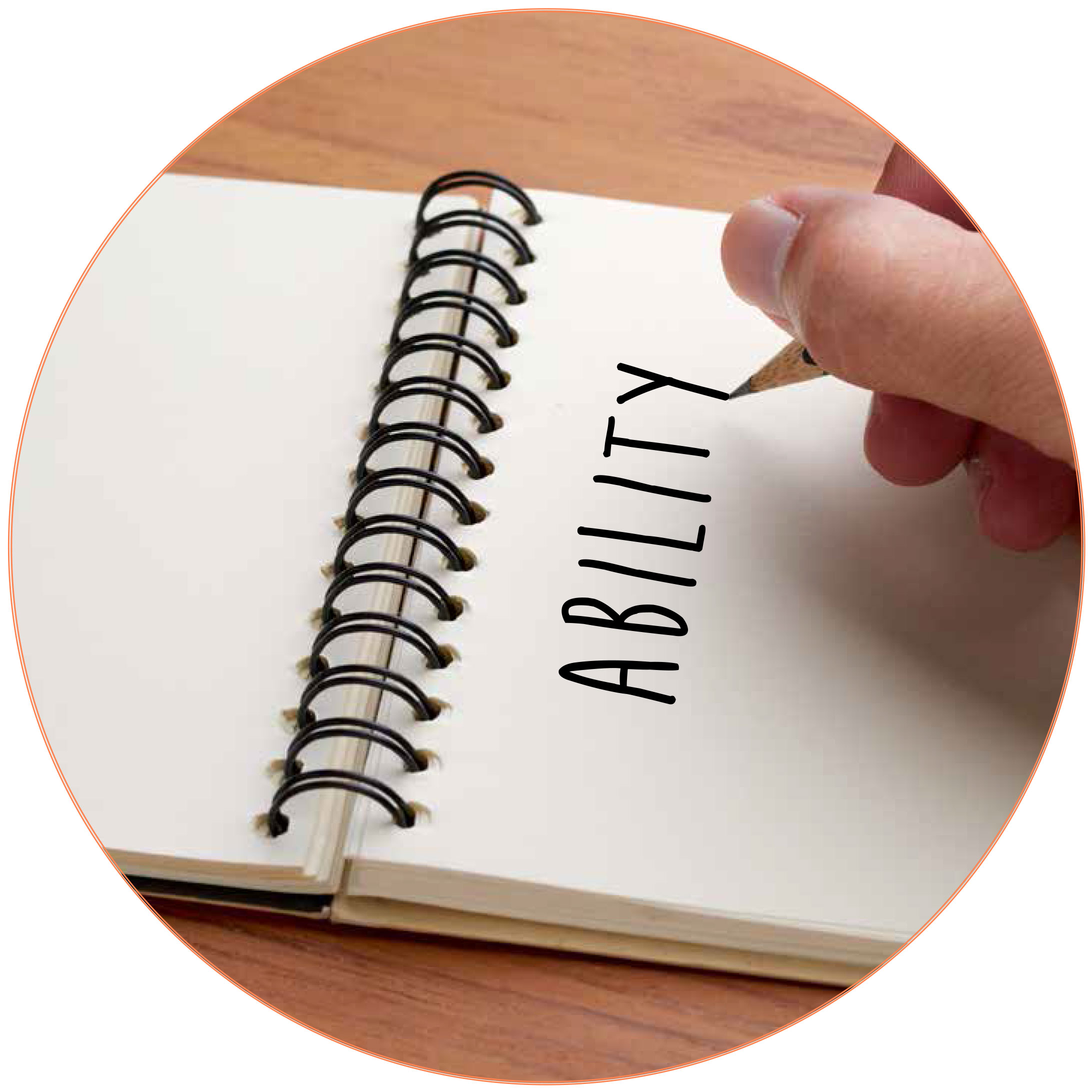know your strengths and challenges
Every person has their own set of talents, skills and character strengths. You will have used many of yours so far in your schooling and life in general. Knowing what they are and how you use them may help you cope better with the transition to tertiary study. You may feel more positive if you find ways of using them at university or TAFE.
Talents are qualities that you are born with and may be improved by purposeful actions. Examples of talents are perfect pitch in your singing voice, good memory or an ability to draw images.
Skills are a learnt ability that you have developed over time in order to carry out certain activities. Examples of skills are writing assignments, carrying out science experiments or managing your time.
Character strengths are virtues that you develop and use by choice. Examples of character strengths are kindness, fairness, curiosity and honesty. Knowing your character strengths and finding ways to use them every day is a good way to build mental well-being and cope with new situations such as making the transition to tertiary education.
Some characteristics of people with ASD can mean they have talents and skills that are beneficial for tertiary study.
Example 1: Many people with ASD have a strong focus on a particular subject or area of interest. If this interest is part of your tertiary studies, it will mean that you will have knowledge and information, and are highly motivated to learn more about this topic. It may also mean that you are less likely to become easily distracted from your studies.
Example 2: Many people with ASD have a very good ability to absorb facts and remember them. This will make learning new factual information easier for you.
Example 3: Being honest and reliable may mean that you can take on some additional roles, such as helping with equipment or filing notes. These roles can help you to gain valuable skills.
In Exercise 2 (linked below) you can use it to write down some the skills you have learnt and developed. Try to focus on those that will help you with your studies. Ask your family members and current teachers what they think your skills, talents and character strengths are.
In Exercise 3 (linked below) ask your family members and current teachers what they think your talents and character strengths are.
challenges
All people have things that they find harder to do. These can cause challenges for your studies.
In Exercise 4 (linked below) you can use it write down some of these things. Focus on those that you think will affect your studies. Try to write down some solutions or strategies that could be used to help with these difficulties. Particularly think of how you can use your strengths and skills to make things easier. These strategies will be discussed later in this booklet, so you can come back to this later if you have more ideas.
question & answer
question: How can knowing my skills and strengths assist me to cope with the transition to tertiary study?
answer: Knowing what your skills and strengths are can assist you in transition and other stressful times in a number of ways. Reminding yourself of your skills and strengths can improve your confidence, which helps you with new situations. Also knowing when you previously used your skills and strengths may help you find ways to use them in the new learning environment.
question: I have a lot of knowledge and skills in my specific area of interest. Am I able to focus on this in all my study?
answer: No, you most likely will not be able to solely focus on your particular area of interest in your studies. You will need to learn about other viewpoints, theories, or applications in this area. Use your depth of knowledge and your interest in the subject matter to motivate you to learn more, and to compare and contrast other viewpoints.
who can help?
- Family.
- Teachers.


